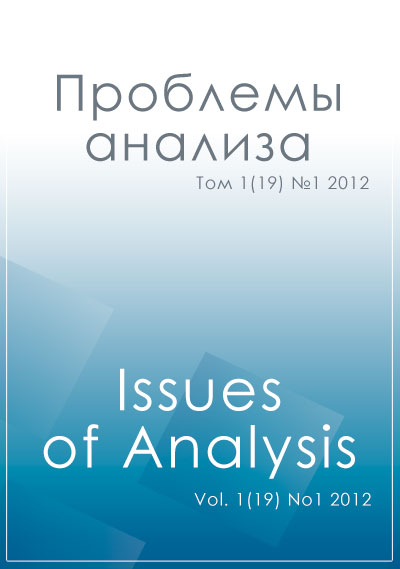Уважаемые студенты!
Напоминаем, что с 9 февраля начнет свою работу курс "Advances in Network Performance Analysis". Желающим посещать курс необходимо записаться в 253 каб. Расписание занятий в ближайшие дни появится в нашей группе и на сайте ИМИТ.
Представляем вам аннотацию курса.
Спецкурс по выбору:
Advances in Network Performance Analysis
Instructor: Prof E.V.Morozov, Prof. Michele Pagano (University of Pisa, Italy)
Prerequisites:
Elementary Probability Theory (basic definitions, limit theorems, random variables), introductory concepts on Markov Chains, some basic notions on computer networks. In any case, all these topics will be briefly recalled when needed.
Aims:
The aim of these lectures is to present some advanced topics related to the performance evaluation of Telecommunication Networks.
The first part of the course deals with an overview of the main traffic models for packet switching networks, including topics such as long range dependence and self similarity. Then, the effect of congestion control over network performance will be taken into account, focusing on modelling the throughput of TCP flows as a function of RTT and losses.
The second part of the course addresses the issues related to rare events, considering analytical results (based on Large Deviation Theory) as well as simulation techniques (Importance Sampling and Restart).
1. Traffic models
- General concepts on Quality of Service and network traffic models
- Overview of Short-Range dependent traffic models
- Renewal models
- Markov Models (MAP, BMAP, MMPP)
- Linear Stochastic models (AR, ARMA, ARIMA)
- Long Range Dependence and Self-Similarity
- Basic definitions
- Estimation of Hurst parameter
- Long-Range Dependent traffic models
- Fractional Brownian motion & Fractional Gaussian noise
- F-ARIMA, Chaotic Maps
- Heavy tails
- Alpha-stable processes
- Multifractal processes
2. Congestion control in packet switching networks
- Overview of TCP and TCP congestion control
- Modelling TCP performance (for long lived connections)
3. Large Deviations Theory (LDT)
- LDT as an extension of traditional limit theorems
- LDT for iid RVs: Cramer Theorem
- Gartner-Ellis Theorem
- Contraction principle
- Basic LDT results for Gaussian processes
- Application of LDT to queues
- Basic results for SRD and LRD traffics
4. Rare Event simulation
- Problem statement
- Overview and classification of main simulation techniques
- Restart/Importance Splitting
- Importance Sampling

 ПетрГУ
ПетрГУ


